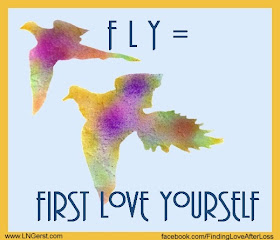With practice, most anyone can learn to communicate with ease and confidence, as well as convey his/her true feelings.
There are two parts to communication: verbal and non-verbal.
Non-verbal clues can include: hand gestures, tics (voluntary or involuntary), stance and posture, facial expressions, breathing (noticeably heavy or shallow), attire, grooming (or lack of), and focus (i.e. wandering eyes).
Your verbal message includes more than the spoken word. The delivery is quite important, too. Consider your answers to the following questions.
1. Are you fluid in your speech pattern and do your words roll off your tongue?
2. Are you hesitant with your words or halting in your speech pattern? This could show a lack of confidence about what you’re trying to convey or it can even be indicative of how you feel about your own worthiness.
3. Does the tone of your voice go up at the end of each sentence so that it sounds like a question rather than a statement? This could indicate that you are unsure of what you’re saying or are afraid to state your opinion. If it is framed as a question, you can always backpedal on the issue.
4. Are you enunciating each word vs. speaking rapidly and slurring your words?
5. Are you modulating the volume of your voice, as well as its pitch and tone? Emphasis on different words in a statement can also change its meaning drastically. Here's an example. If the question "What are you doing?" is asked nonchalantly and posed in a non-threatening manner, it is regarded as benign. However, if the WHAT is emphasized (WHAT are you doing?) it could be indicative of disgust/surprise/horror upon espying someone completing an act. Or, if the YOU is emphasized (What are YOU doing?), it could certainly sound accusatory.
A great many of us have stopped listening to ourselves as we speak, so we’re not aware of all the nuances we communicate. Try taking a step back to become an objective observer of your conversations. Listen for your tone; watch your focus; and pay attention to small/quiet non-verbal nuances which can convey loud messages.
It’s imperative to say what you mean and mean what you say, and back it up with non-verbal cues. In other words, let your actions and words be in sync. For example, don’t say “I’m fine” with evident tears in your eyes and a frown upon your face. In truth, you're telling a "little white lie."
These “little white lies” may be uttered for various reasons that seem “okay” in the moment. For example: (1) supposedly sparing another’s feelings; (2) to agree in order to be liked or be part of the “in crowd”; (3) to avoid conflict or (4) to not burden another.
These types of "lies" are so prevalent in society that it seems as if they are an accepted mode of communication. In fact, a recent article in the AARP magazine quoted an alarming statistic: "If you're like most Americans, you tell 11 lies a week." White lies were included in the total.
Putting aside the the moral issue on lying and the fact that it is simply too hard to remember anything but the truth, researchers have also shown that lying affects your mental and physical health. In a 10-week study, participants who told fewer lies experienced less anxiety and back pain and also had better social interactions. The conclusion was that people feel better when their relationships are going well. No matter how you look at it, lying (no matter the size or the reason behind it) is NOT a component of a healthy relationship that is going well.
Remember that it is very possible to tell the truth and be kind in your delivery. For example, it’s not necessary to say “That outfit makes you look fat.” Instead, you could say, “I’ve seen you wear more flattering outfits. How about the one you wore ….”
The mode of delivery of a message is of utmost importance in all your relationships. Hard and necessary truths conveyed with an undertone of love and acceptance are heard more easily than harsh/cruel words that communicate blame and criticism.
Heed the words of James M. Barrie, who said: "Shall we make a new rule of life from tonight: always try to be a little kinder than necessary."




































